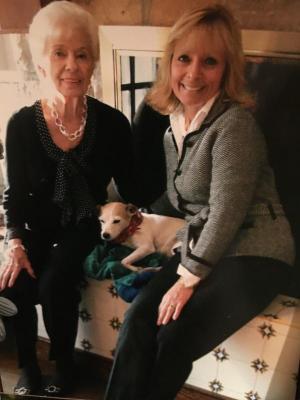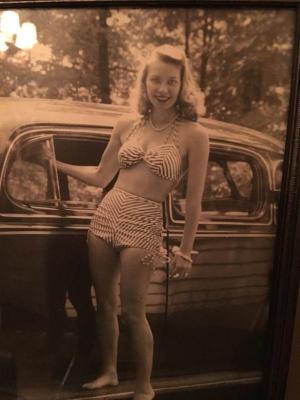Parents do the best they can!
My friend Carolyn and I were having lunch over the weekend, when we noticed an elderly woman walking with some difficulty. Carolyn got teary-eyed and said, “That woman reminds me so much of my mom.” A younger woman sat next to her then.
“That must be her daughter,” Carolyn says. “I hope she appreciates the time she has left with her.”
We talk about our moms and how much we wish we could call them today. I loved her mother too, and she loved mine.
Carolyn sips her tea and says, “My mother didn’t talk to us much at dinner. I remember she read the paper and we ate in silence. I really resented that. Now I think after working all day and cooking dinner, she was exhausted and just wanted some peace and quiet.”
I nod and think I was hard on my mom too sometimes. I wanted her to be independent and stand up to my father. His drinking was affecting all of us. Just leave, I thought. But without money and six children, where was she to go?
At age 65 now, I think about her 60th birthday. She had an operation that morning. The doctor claimed he would have her dancing in a week. He botched the procedure. Seven months later, and after many subsequent surgeries, her leg was amputated.
I was on childcare leave, and I could care for her. She struggled to walk with the prosthesis.
Flashback to a family gathering about a year after her surgery. When it was time for everyone to hit the Christmas buffet, I thought she should try to serve herself. I had witnessed what she was able to accomplish in occupational therapy. My older sisters rebuked me. “How is she supposed to balance a plate and use her walker?”
She wasn’t supposed to be using her walker because her prosthesis enabled her to walk erect. I tried to help foster her independence because she lived alone.
Today, like Carolyn, I miss my mom too, and wonder did I give her enough time? Did she think I was too hard on her? Many parents want more time with their adult children and with their grandchildren too.
Today my adult children are working full time and raising their own children, and I remember how it felt to try to balance everyone’s needs. But I have lots of time to think about them every day.
Carolyn and I wish we could somehow warn our children. Say something like, ‘I’m not going to live forever, you know.’
We leave the restaurant, and she asks me if I want to visit Granny, her husband’s mother.
Granny is special. At age 93, she might be the oldest supporter of my writing career. I look forward to her Christmas card every year as she writes her own poem inside. Of course, I say. Let’s visit Granny. I can take her copies of my recent columns.
My friend says, “She will love seeing you. She loves reading your work.”
And when we entered her dining room, her face lit up. Her sweet smile was endearing as she said, “Thank you for coming!”























































